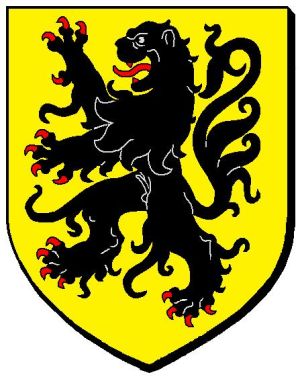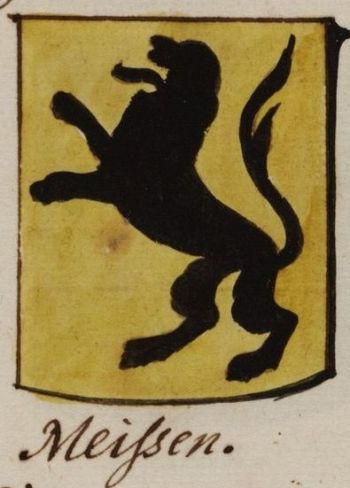Margravate of Meissen: Difference between revisions
Jump to navigation
Jump to search
Knorrepoes (talk | contribs) m (Text replacement - " Wapen- en Vlaggenboek van Gerrit Hesman (1708)" to " Wapen- en Vlaggenboek van Gerrit Hesman (1708)") |
Knorrepoes (talk | contribs) m (Text replacement - "===Official blazon=== *(de) " to "{| class="wikitable" |+Official blazon |- |'''German''' | ") |
||
| Line 5: | Line 5: | ||
[[File:{{PAGENAME}}.jpg|center|300 px|Arms (crest) of {{PAGENAME}}]] | [[File:{{PAGENAME}}.jpg|center|300 px|Arms (crest) of {{PAGENAME}}]] | ||
= | {| class="wikitable" | ||
|+Official blazon | |||
|- | |||
|'''German''' | |||
| | |||
===Origin/meaning=== | ===Origin/meaning=== | ||
Revision as of 09:43, 5 July 2022
This page is part of the German heraldry portal Deutsche Wappensammlung |
Heraldry of the World |
|
German heraldry:
|
Selected collector's items from Germany:
|
MARGRAVATE OF MEISSEN (German: Markgrafschaft Meißen)
| German |
Origin/meaningThe Margravate of Meissen was a medieval principality in the area of the modern German state of Saxony. It originally was a frontier march of the Holy Roman Empire, created out of the vast Marca Geronis (Saxon Eastern March) in 965. Under the rule of the Wettin dynasty, the margravate finally merged with the former Duchy of Saxe-Wittenberg into the Saxon Electorate by 1423. The arms show a a black lion on a golden field. The lion can still be found in the arms of for example Chemnitz, Dresden, Leipzig and Meissen
Contact and SupportPartners: Your logo here ?
© since 1995, Heraldry of the World, Ralf Hartemink |














